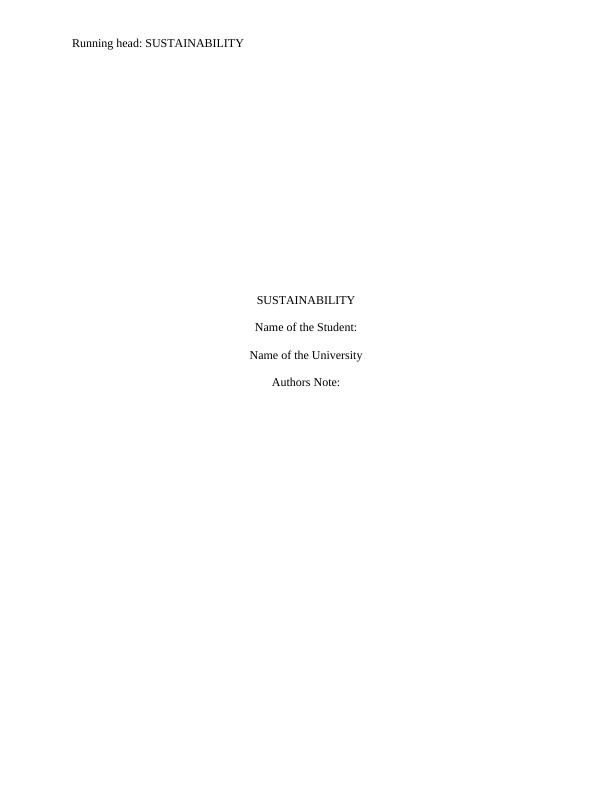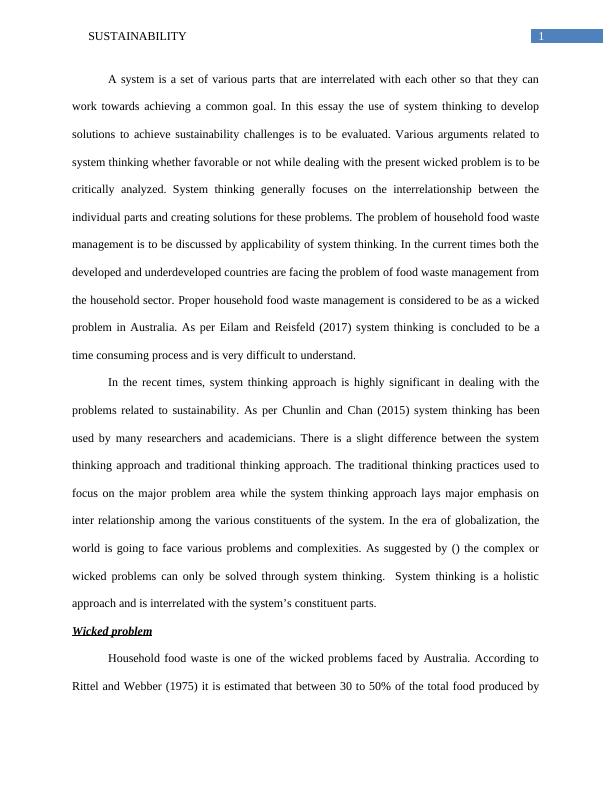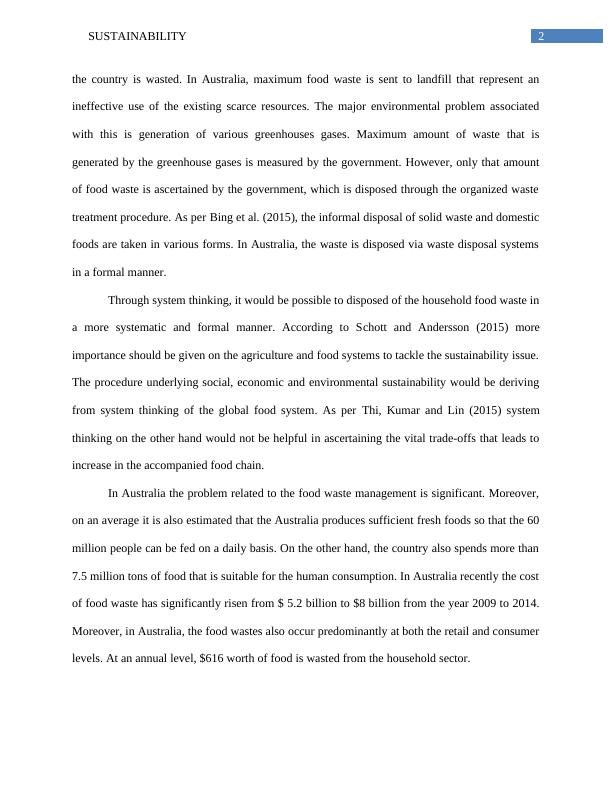System Thinking for Achieving Sustainability: A Case Study on Household Food Waste Management in Australia
Individual research paper on the role of systems thinking in sustainability challenges, with a focus on either household food waste or deforestation.
10 Pages2605 Words139 Views
Added on 2023-06-14
About This Document
This essay evaluates the use of system thinking to develop solutions to achieve sustainability challenges, with a focus on household food waste management in Australia. The wicked problem of food waste management is discussed, and the three pillars of sustainability are explored. The benefits and challenges of system thinking are analyzed, and a six-step process for applying system thinking is presented. The importance of economic, social, and environmental sustainability is emphasized, and the potential for system thinking to create sustainable food systems is discussed.
System Thinking for Achieving Sustainability: A Case Study on Household Food Waste Management in Australia
Individual research paper on the role of systems thinking in sustainability challenges, with a focus on either household food waste or deforestation.
Added on 2023-06-14
ShareRelated Documents
End of preview
Want to access all the pages? Upload your documents or become a member.
The Role of Systems Thinking in Developing Solutions for Sustainability Challenges: A Case Study of Household Food Waste in Australia
|8
|2311
|354
Household Waste Management: A System Thinking Approach
|5
|1809
|380
Waste Management: A Wicked Problem
|8
|2136
|245
System Thinking for Sustainable Development: Household Food Waste in UK
|10
|2759
|245
Systems Thinking in Dealing with Sustainability Challenges: Household Food Waste
|10
|2934
|95
Incorporating System Thinking for Sustainable Household Food Waste Management
|10
|2562
|409



